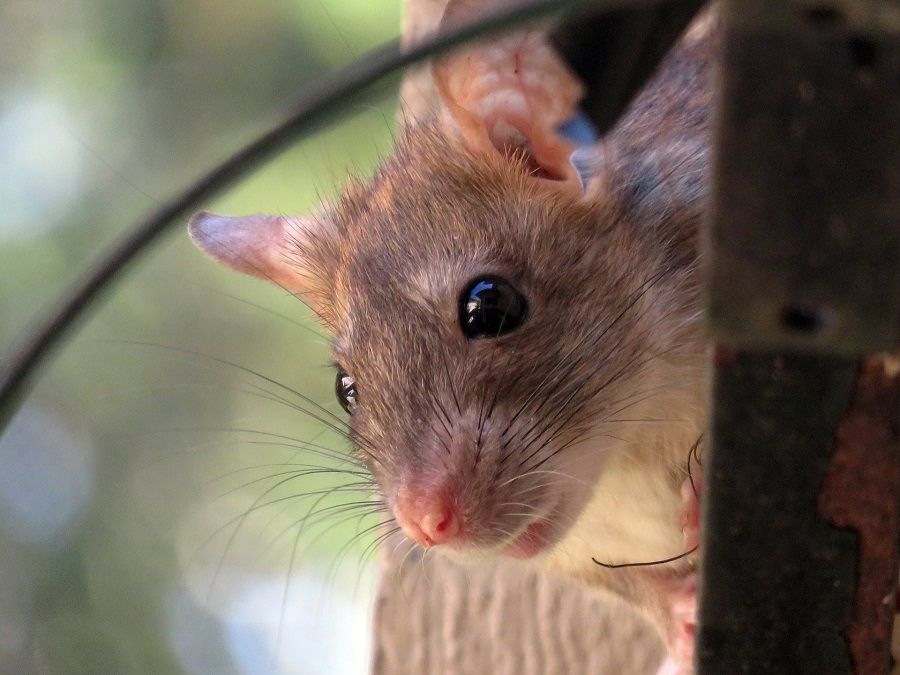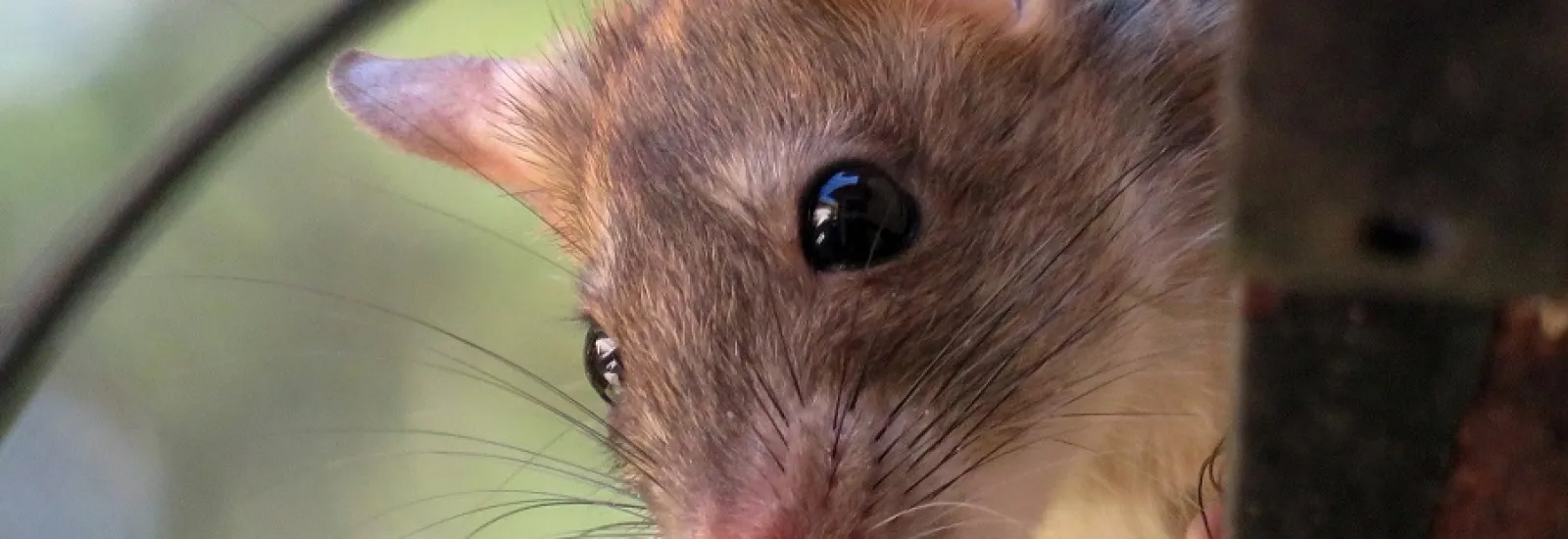Florida may be known as the Sunshine State, but it also has a wet season and faces the potential of hurricanes every year. This weather combination can definitely be hard on roofs, but there's a less well-known risk to Florida roofs that exists all year: roof rats. Many homeowners don't understand the need to protect themselves and their roof against this disease-carrying nuisance. Roof rats cause thousands of dollars in damages to homes every year. Just ask roofers in Bonita Spring, Florida!
The word rat usually causes a reaction of revulsion and creates a mental image of rodents scurrying through dark, dank alleyways in a big city such as New York or Chicago. But in Florida, there are invasive rodents known as palm rats. They spend their days in trees and can sneak through small spaces you wouldn't think they could get through. They can cause all kinds of damage to your home, including to your roof.

How Do You Know if You Have Roof Rats?
Roof rats like to nest up high. They're good climbers and can easily get into your attic and home. They travel along power lines and climb vines, bricks, concrete blocks, and other rough surfaces. They only need an opening the size of a nickel to get into your house in their quest for food or attempt to escape from predators.
You may have a roof rat infestation if you:
- Find rat droppings
- See roof rats in fruit trees near your home or on nearby power lines
- Notice hollowed-out fruit around your fruit trees
- See gnaw marks around your home's roof
- Find damage to electrical wires caused by gnawing
- Hear scratching noises in the attic or in the walls
- Find nests in insulation
Roof rats are long, thin rodents with large eyes and ears, pointed noses, and scaly tails. Their smooth fur is typically brown with intermixed spots of black and an underside that is white, gray, or black. Adults are 6-8" (head and body) with long tails. They typically weigh 5 to 12 ounces. Female roof rats can have up to two dozen babies a year, so it's important to take care of an infestation as quickly as possible.
Dangerous Health Hazard
Like all animals, roof rats can show aggression if they feel threatened. A bite from a roof rat can transmit disease. Symptoms of rat-bite fever occur within a few days to a few weeks. They include rash, vomiting, headache, fever, and muscle and joint pain.
Be aware that roof rat droppings and urine can also spread disease. Take appropriate precautions if you clean up droppings because, if not properly treated right away, diseases spread by rodents have been known to be fatal to humans.
Damage to Your Home
In addition to potential health hazards, roof rats can damage your home. They can chew holes in the soffit and eaves and get into the attic. Once inside, they can chew on wires, potentially causing electrical and fire hazards. In their attempts to get to water, they're able to chew through plastic and metal pipes, causing water problems that can lead to water damage.
Roof rats gnaw on wood. Undetected, they can gnaw on beams to the point that can cause structural damage. Plus, they decrease the effectiveness of insulation by trampling it down and nesting in it.
If all that isn't bad not enough, they also:
- Contaminate areas with urine and feces
- Contaminate food
- Trigger asthma and allergic reactions
- Damage books, pictures, clothing, and other items of personal property
- Bring in parasites, such as mites, fleas, or ticks

Getting Rid of Roof Rats
If you discover signs of roof rats, you have several options to get rid of them. Rat traps (snap traps, glue traps, and electronic traps), repellents, and pest services are the most widely used choices.
Snap Traps: The roof rat diet differs from other types of rats. The best option for baiting a trap is dried fruit. They also respond to nuts, berries, and peanut butter. They're cautious of new food sources, so an effective technique is to lure them to a baited trap for a few days without setting it. Once they trust it as a safe food source, set the trap.
Glue Traps: If you object to snap traps, glue traps don't require baiting or setting, and they're easy to use. Glue traps have a sticky surface that stops the pest in its tracks upon contact and prevents it from escaping. Glue traps don't use harmful chemicals or poisons, so they're safe to use around pets and children. To prevent a rat from returning to your home, take it 5 to 10 miles away, preferably to an uninhabited area, before releasing it using vegetable oil.
Electronic Traps: A more modern option is the electronic trap that provides a nontoxic solution by using a high-voltage shock.
Ultrasonic Repellants: Ultrasonic repellents emit high-frequency sound waves that deter rodents, so they don't enter your house. While the sound is terrible for rodents, it doesn't bother humans or dogs, cats, or fish. Note that guinea pigs, hamsters, and ferrets should be kept in a room that's away from the device.
Pest Service: A pest service removes unwanted creatures, including roaches, ants, bedbugs, termites, rats, and other critters. They inspect buildings for signs of pests to determine the treatment needed and help manage and regulate them.
Preventing Problems
To prevent a roof rat infestation, use silicone caulk to seal any holes or cracks larger than a dime. Make sure that all windows and vents are screened. Keep trees and shrubs trimmed away from the building and cut back limbs that overhang the roof. Clean up any fruit that falls into the yard. Use tightly covered receptacles for garbage and store pet food and other dry food in sealed containers. Eliminate or control items that could provide sources of water, such as pet water dishes and birdbaths.
Latite Roofing
Latite Roofing is the largest roofer in Florida, providing roofing services, including roof installations and roof replacements, to area residences and businesses for 75 years. Latite Roofing is proud of its reputation for excellence and for providing complete customer satisfaction.
If you suspect a roof rat infestation in your home, contact Latite Roofing. We offer a variety of services and will quickly repair roof leaks in Bonita Springs, FL, whether they're from roof rat damages or any other cause. Call us at 1-800-639-7663.
We provide roofing services in Tampa, Fort Myers, Naples, Bonita Springs, Miami, West Palm Beach, Fort Lauderdale and surrounding areas.
